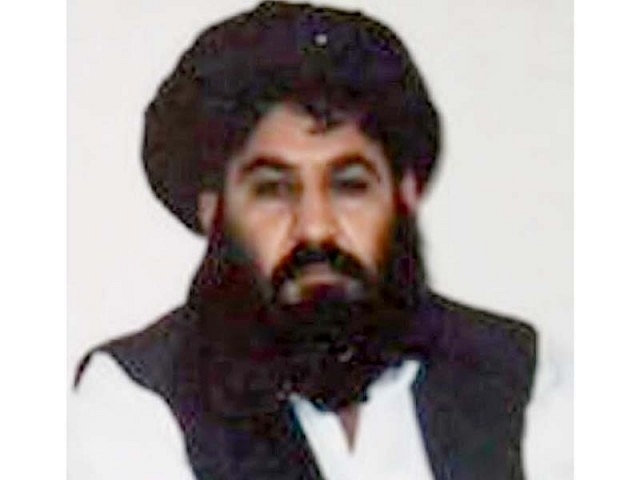
Afghanistan: No Good News For India
Will Mullah Mansour, Mullah Omar’s successor, be able to match up to his predecessor’s status? His audio message makes two things clear: goals of preserving unity, and establishing an Islamic state.
The day the Afghan Taliban confirmed the death of their Amirul Momineen, (commander of the faithful), a former Afghan intelligence chief told BBC World Service radio: “Mullah Omar was no Che Guevara, no Fidel Castro, no Ahmad Shah Massoud, or even no Nelson Mandela”.
No doubt about that. And their new leader Mullah Akhtar Mansour even less so.
The Western media’s projection of Mullah Omar was always a half-truth: the one-eyed spiritual leader had turned a band of religious students into a movement that seized control of most of Afghanistan.
There is nothing peculiar in this, except that Mullah Omar owes every bit of his group’s rise and existence to Pakistan.
After giving up on Gulbuddin Hekmatyar of Hizb-i-Islami, the Pakistani establishment mounted a fresh effort to pick another horse in Afghanistan. Instinct led it to two famous Maulanas: the leaders of two rival factions of the Jamiat Ulema-e-Islam party, Fazlur Rahman and Samiul Haq. They were both standing on the nexus of a jihadi conglomerate and mainstream politics.
Mullah Akhtar Mansoor
The Taliban brainwave of the Maulanas was quickly accepted by Rawalpindi. Samiul Haq, the head of the famous Darul Uloom Haqqania madrassa in Khyber-Pakhtunkhwa’s Akora Khattak, played a critical role in pitchforking Mullah Omar to the Taliban’s apex.
The mullah-military coordination intensified between 1994 and 1996.
Between 1994 and 1996, the Pakistani Army and the ISI got busy. They digged into their vast pool of resources to fund, train, arm, and give intelligence support to hordes of semi-literate (more precisely, illiterate for all intends and purposes of the modern world) Taliban. They helped slip them across the Durand Line. Among them was Maulana Omar, the chosen one. The Maulanas, for their part, got on with recruitment and fund-raising business.
This was the period of Benazir Bhutto’s second government (1993-96). Her loudmouth Interior Minister Naseerullah Babar was the pivot within the administration. Early in her tenure, Benazir Bhutto rewarded Maulana Fazl with the post of chairman of the National Assembly’s Foreign Affairs Committee for political support. Maulana Samiul Haq always enjoyed gravity as the head of Darul Uloom Haqqania.
Though he was a creation of Pakistan, Mullah Omar proved to be an intractable client once he conquered Kabul in 1996 and Mazar-i-Sharif in 1998 amid much bloodshed.
He was wont to defy Pakistan (notably, by dynamiting the Buddhas of Bamiyan, and after 9/11). He was responsible for every action of the Taliban since 1996. Yet, it was a testament to the spiritual title he held that he could control everything from his Kandahar compound passing on commands, as folklore has it, scribbled at times on crumpled cigarette packets.
Will Mullah Mansour, Mullah Omar’s successor, be able to match up to his predecessor’s status? His audio message makes two things clear: goals of preserving unity, and establishing an Islamic state.
Both goals are fraught.
Though Mansour was effectively commanding the Taliban since Omar’s death in April 2013, fissures have developed in the top leadership over who should succeed him.
His appeal for unity came a day after Omar’s son, Yacoob, termed Mansour’s election as cliquish and unacceptable. After eclipsing the Al-Qaeda in much of West Asia, the Islamic State’s spreading wings in Afghanistan is a looming challenge.
Lacking Omar’s authority holding it together, the Taliban could simply fragment if more and more disgruntled elements join the Islamic State.
His stress on carrying on jihad was followed by the Taliban’s pull out of peace talks between them and the Kabul government facilitated by Pakistan. After NATO and US troops ended their combat mission late last year, the Taliban had been sensing victory with the capture of swathes of territory in the country’s east and south, and had been brazen in attacking Kabul, as the one on parliament in June showed.
All bets will be off if the Taliban splinter and cede ground to the Islamic State. Mindful of their heavy investment on the Taliban, especially the Quetta-based Haqqani network, Pakistanis won’t like it at all.
In a bid to keep the flock and its profile intact, Sirajuddin Haqqani was promptly named the deputy to Mansour. It is a move tied to keep the cash flow from the Haqqanis’ wealthy donors open and present a semblance of unity. Nevertheless, it will still be a precarious show of unity.
Now we know that Mullah Omar is dead, but the objective of “disrupting, dismantling, and defeating Al Qaeda and its extremist allies”, as President Barack Obama stated in December 2009 West Point address, is getting ever more harder
There is not much good news for India in all this. We can only assume our interests in Afghanistan will come under more ferocious assaults.
The author is a New Delhi-based journalist. Email: rajiv.jm@gmail.com